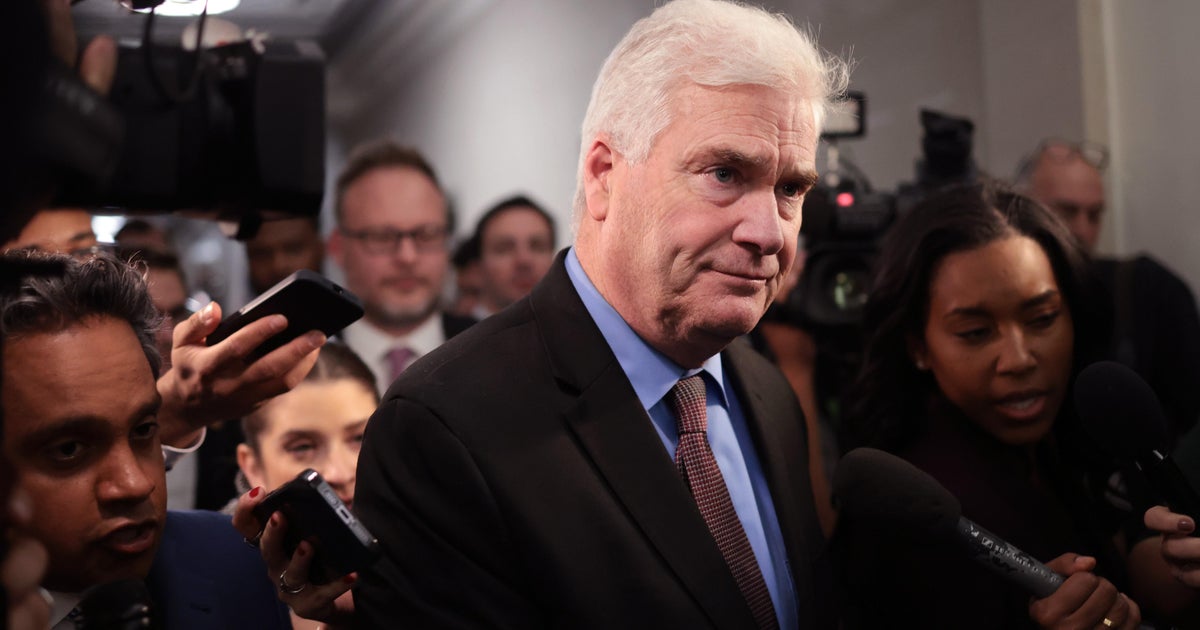Senate to take up sweeping voting rights bill in June
The Senate will take up S. 1, a sweeping voting rights and campaign finance reform bill, at the end of June, signaling that Democrats are pressing forward with their agenda despite the threat of filibuster by Republicans.
Senate Majority Leader Chuck Schumer said in a letter to colleagues that the Senate will vote on the "For the People Act" in the last week of the June work period. But the bill is unlikely to move forward in the Senate, as most legislation requires 60 votes to advance, and Democrats have a 50-seat majority. Republicans oppose S. 1, meaning that a vote to end debate on it is all but certain to fail.
The bill would revise government ethics and campaign finance laws, and try to strengthen voting rights by creating automatic voter registration and expanding access to early and absentee voting. The legislation would also require states to overhaul their voter registration systems, limit states' ability to remove people from voter rolls, increase federal funds for election security, and reform the redistricting process.
Some Democrats have also expressed concerns about the bill, most notably Senator Joe Manchin, a moderate from West Virginia who has called on his colleagues to put together bipartisan voting reform legislation. Schumer told reporters on Friday that "we've had two very good, strong and intense discussions in our caucus" about the bill, and said that "it was made clear how important S. 1 is to the country, to our Democratic majority and to individual senators."
"Those discussions are ongoing and I have a lot of faith in them," Schumer said.
The Senate is in recess next week, but Schumer said it would take up the U.S. Innovation and Competition Act on June 8. The vote was initially set to occur on Friday, but last-minute opposition derailed the bipartisan bill, which would try to counter China's global economic and political influence. The bill was a key priority for Schumer, who, along with Republican Senator Todd Young, wrote the base of the legislation.
The Senate will also take up the House-passed Paycheck Fairness Act that week, which aims to reduce the gender wage gap. Schumer told reporters that the Senate may consider gun safety and LGBTQ equality legislation in June, too.
However, Republicans are unlikely to support most, if any, of these bills. Some Democrats have called for the elimination of the filibuster, which would allow bills to advance with a simple majority. There were renewed calls to end the filibuster on Friday, after Senate Republicans blocked a bill to create a commission to investigate the January 6 attack on the U.S. Capitol. Fifty-four senators voted to advance the bill, meaning that without the filibuster blocking it, the measure would have passed.
"I think the events of the last few days, probably made every member of our caucus, realize that a lot of our Republican colleagues are not willing to work with us on a whole lot of issues, even issues where we tried to be bipartisan," Schumer told reporters on Friday. Although he was unwilling to commit to consider eliminating the filibuster outright, Schumer said that "everything is on the table."
However, Manchin, who has consistently expressed opposition to eliminating the filibuster, told reporters on Thursday that he was "not ready to destroy our government."




